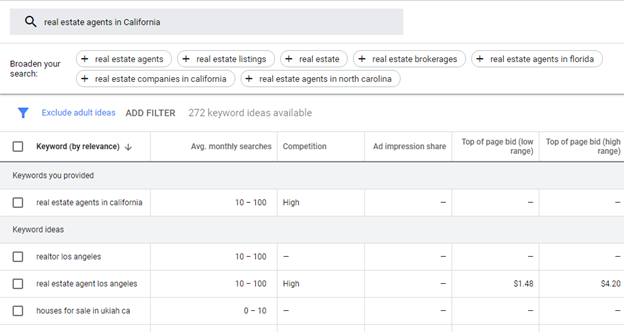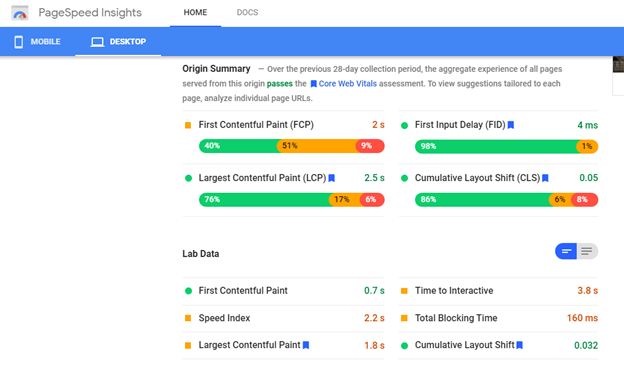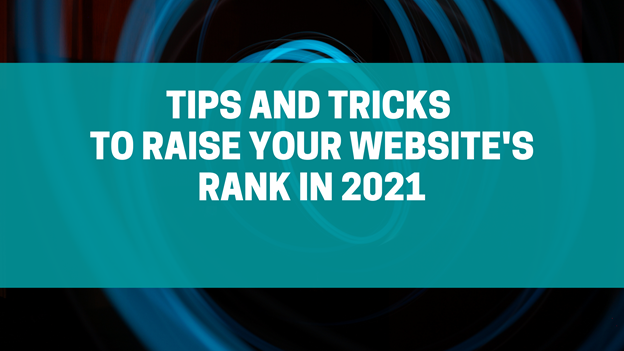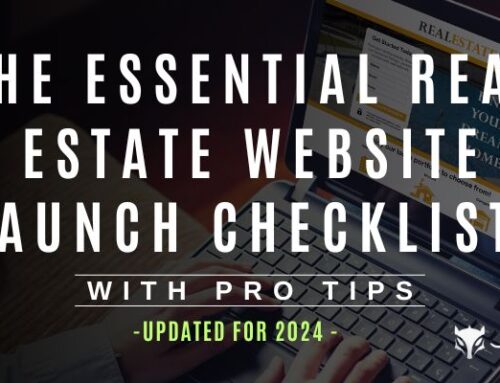Raising your website’s rank in 2021 requires that you improve your Search Engine Optimization (SEO) tactics. SEO is a game of rules, and you need to implement Googles’ requirements to appear on the top pages.
At first, all you need to learn are the basics of keywords, tags, and content. But as you dive deeper into advanced SEO strategies, you will need a few extra tips and tricks to succeed.
We’ve created this article focusing on the eight essential tips that can position your real estate business on top of Search Engine Results Pages (SERPs). These tactics will be the core of most of your digital strategies in 2021 and beyond. The tips will also inform your content calendar and help you achieve improved results throughout the year.
1. Research the Best Performing Pages on a Competitors’ Website
If you aren’t already spying on your competitors, you are most probably missing out on great opportunities to rank. Knowing your competitor is the best way to see what you are competing against. If, for example, you are a real estate agent, competitor research will inform your strategies for selling more properties.
For competitor research to be successful, you need to discover your business’s strengths, weaknesses, opportunities, and threats (SWOT). Next, check your competitor’s top pages to find tactics that bring the most traffic.
From your results, create a comparison table. The data will help you discover gaps in your competitor’s strategies. Using gap analysis, you can create content that covers left out areas that can help you outrank other real estate companies.
As you carry out your research, there are four key areas you should focus on:
- Top pages based on ranking keywords
- Top pages based on shares
- Top pages based on links
- Top pages based on traffic
From this information, check for areas you can mix different concepts to guarantee better results. If, for example, a competitors’ page has been ranking for specific keywords but is still low on links, you can look for ways to out link them and steal some of their traffic.
A point to note in this is that competitor analysis is a continuous process. Though it may take some time to get all the data, the results are always worth the efforts. Competitor research needs a strategic approach. For starters, concentrate on contexts that help you grow gradually as you aim to appear on search engines’ top pages.
2. Analyze Your Metrics
Metrics are a reflection of what you have achieved in your digital strategies. Metrics help you discover what you have been doing best and which areas need improvement. If you have appeared in the featured snippets, the metrics will help you stay up-to-date with strategies that maintain your #0 position.
But often, analyzing your metrics involves more than just knowing your page’s position. A successful analysis includes learning your buyers and discovering how they behave on your website. With a tool like Google Analytics, you can track the behavior of your page visitors. Some of the information that Google analytics delivers include:
- Who visits your website?
- Your audience’s location
- The browser they use to access the pages
- The most common device that login to the website
- Competitor data
- Traffic coming to your website through referrals
- How users navigate your site
- Check which pages are popular
3. Create a Content Strategy Based on Relevant Primary and Secondary Keywords
When it comes to keywords, both the primary and secondary determine where you appear on search engines. If you have been focussing only on the primary keywords, you have likely lost traffic to people using different terms to search for a business like yours.
A tip on great keyword search is understanding key phrases that your audience use in search pages. An excellent example of how keyword ideas can help you reach a larger audience is searching for the phrase “real estate agents in California” on the Google Keyword Planner. The results show a variety of other terms you can include in your content to target more buyers.

4. Include a Content Calendar to Guide Your Digital Marketing Campaigns
Content planning guides a business’ SEO strategy. A content calendar also provides order in your digital campaigns. It ensures that realtors set apart enough time for research, creation, and delivery of content.
Planning also ensures consistency. It makes sure that you drive website traffic in the shortest time. If, for instance, your 2021 goals involve developing real estate marketplaces a content calendar will help you in executing the plan. A content calendar is also a great reminder of when to check on your metrics and peep on a competitors’ data.
5. Improve Load Speeds on Top Performing Pages
Speed is what keeps visitors on your page. Incredible speeds will ensure that everyone visiting your page completes their processes in the shortest time possible. If your speeds are slow, you will find visitors leaving, never to come back.
It’s for this reason that Google considers load speed as one of its ranking factors. If your page takes more than 2 seconds to load, Google punishes you by pushing you lower in SERPs.
Luckily, there are several tactics you could use to improve your page speed in 2021.
- Consider browser caching to reduce load time for similar page requests from return visitors.
- Enable file compression to reduce the size of JavaScript, HTML, and CSS files.
- Reduce the size of large images that could be slowing your page.
- Use a CDN to help distribute high traffic across different servers.
- Reduce redirects to cut the time visitors have to wait for additional pages to load.
- Delete unnecessary plugins.
- Monitor your speed regularly.
- Optimize your images for search engines.
Here’s an example of how passing these core web vitals has helped improve speeds on Jason Fox

6. Create High-quality Content
High-quality content is informative, engaging, and educative. It attracts visitors to a website and encourages them to keep coming back for more. The content is recent, relevant, and well-formatted.
If you are looking to raise your website rank in 2021, always deliver high-quality content. To boost your ranking, make sure that the content is relevant to what people search online. This means focusing on agents, property managers, homeowners, landlords, and other buyers in real estate businesses.
For all your audiences, make sure to share exciting content. Interesting content will keep visitors on your page longer, thus reducing bounce rates. Fewer bounce rates indicate to Google that you are sharing what people are looking for. This, in turn, generates more traffic and raises your website’s rank.
7. Have a Mobile-friendly Website
Mobile is huge. According to a report by Statista, it is estimated that more than half the people accessing the internet are doing it through mobile phones. And with numbers expected to keep rising, it’s no wonder Google has mobile-responsiveness as one of its ranking factors.
So, this year, consider including mobile SEO in your digital marketing plans. Mobile SEO helps you focus on specific ranking search terms for mobile users. Better still, create a strategy that factors users on all devices.
For technical advancements, consider hiring a web design firm to develop elements that function across different devices. For real estate businesses, having a web designer that understands the industry could upscale your score. A developer like Jason Fox is what you need to dominate your real estate market.
Also, consider including an SEO expert to work with your web developer. This is because most web elements require an SEO perspective to rank your pages. By having an SEO consultant, you ensure that interactions on mobile, laptops, and tablets meet your performance goals.
Even better is how professional SEO services perform a regular check on your analytics. The teams will also advise on when specific Google updates affect traffic. Working with an SEO expert offers opportunities to learn the current UX designs that affect website ranks for web developers.
8. Target Google Featured Snippets by Breaking Content with Header Tags
Appearing at the “#0 results” is a dream for many. Featured snippets put you at the top of SERPs even when you don’t have higher Google rankings. With almost zero effort in technical SEO strategies, you can appear on the featured snippets and gain up to 8% of all clicks.
But optimizing for Google’s featured snippets is no simple feat, It requires that you create content with excellent structure that improves the overall user experience. The content below the headers should also be well-detailed to include every information the visitor needs. By having detailed content, you indicate to Google that anyone visiting your page will get all the information they need.
Also, creating content for featured snippets requires more creativity. Aspects such as jump links at the top of the page are necessary when creating the content. Google considers jump links essential since they help page visitors access the specific information they are interested in.
Final Thoughts
There you have it – the eight tips and tricks to raising your website’s rank in 2021. If you haven’t already started, take this as an opportunity to kick-start your digital strategies. Growing your website’s ranking is a great way to attract traffic, boost conversions, and increase revenue.







Leave A Comment